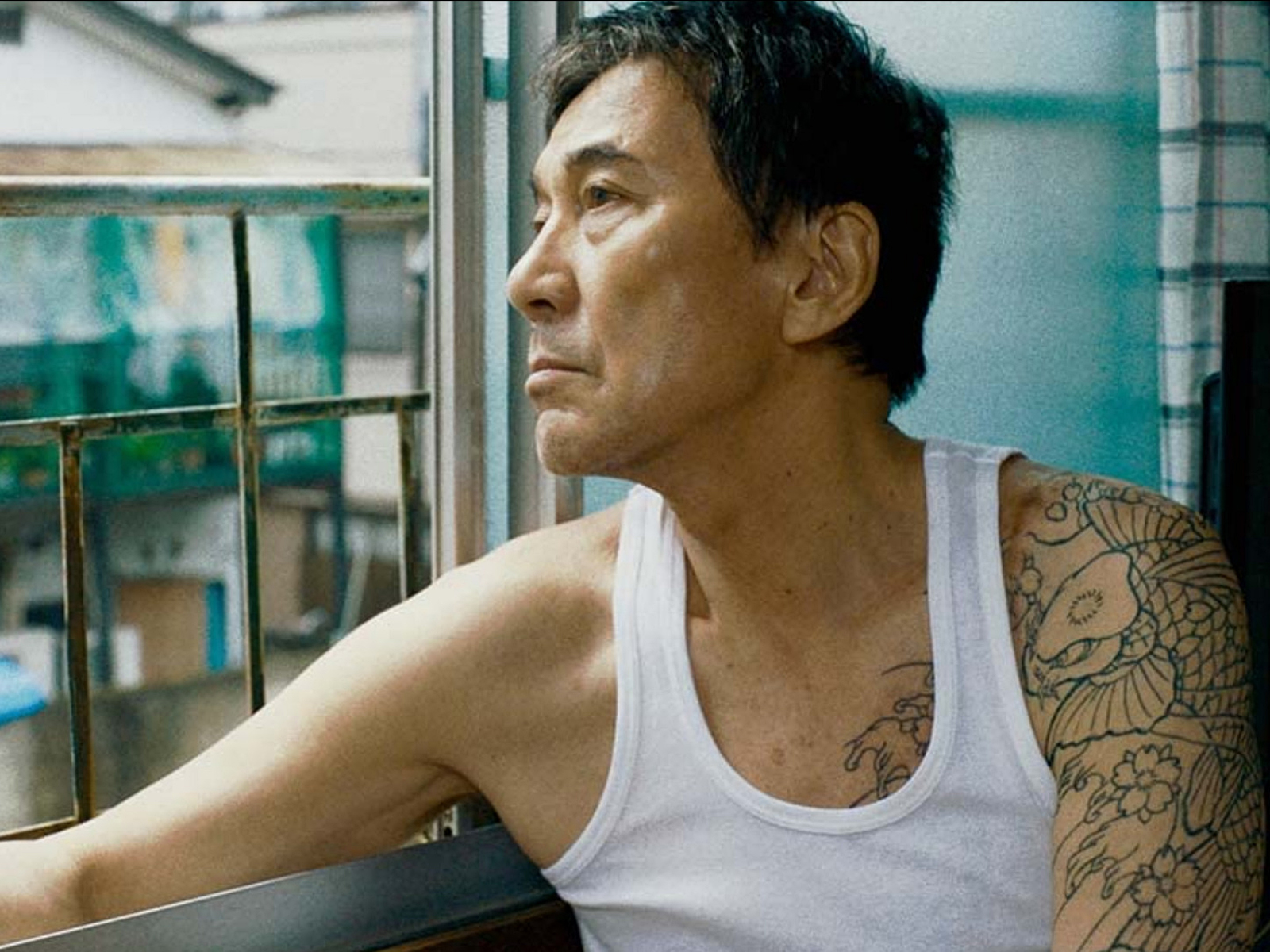
- Golden Globe Awards
Under the Open Sky (Japan)
Under the Open Sky follows the journey of Madao Mikami, released after serving thirteen years in prison for murder. Sporting an unfashionable rice bowl haircut, the sunken cheeked, hollowed eyed ex-felon marches out of prison into the snowy, cold world, swearing to leave his yakuza life behind and start a new life. He is met by his lawyer, who advises him to apply to receive social welfare, but the aging ex-con was determined to earn a living using the skills he learned behind bars.
Meanwhile, Mikami longs to find his long-lost mother, when his “inmate’s file” lands on the desk of a TV director Tsunoda. Tsunoda sees Mikami as an exploitable resource and a project that could reboot his own failing career, while Mikami sees the TV show as his best chance to reconnect with a mother that he hardly knew. Little do they realize that in planning to exploit one another, they would end up connected in ways they could never have predicted.
Based on the Japanese award-winning novel “Mibuncho” (The Inmate’s File), the adaptation is directed by Japanese female director Miwa Nishikawa, who became a name to watch after her second film Sway premiered at Cannes’ Director’s Fortnight fourteen years ago. With veteran actor Koji Takusho portraying the title role, her sixth feature chronicles the rocky re-entry of an ex-con into society and the unlikely allies and friends he encounters along the way. Left by his mother, Mikami went from an orphanage to a correctional institution, and his identity and beliefs often clashed with the social norm.
When this one-time mob driver can’t get his driver’s license renewed and with no job prospects in sight, he considers going back to his old way of living.
“It’s physically dangerous but mentally comfortable,” Mikami said.
But even the Yakuza business has been in decline and the story arc changes when Mikami narrowly escapes becoming another statistic of ex-cons reentering the world of crime. With his newfound sense of self, Mikami returns to the world that rejected him and gives it another shot. He puts his foot forward and eyes on the job and eventually finds his place, conforming to the “norm”. The question is, has he really found peace?
The film recently won the Best International Feature Audience Choice Award at the 56th Chicago International Film Festival and was a double winner following the Best Performance Award for Koji Yakusho at the festival.